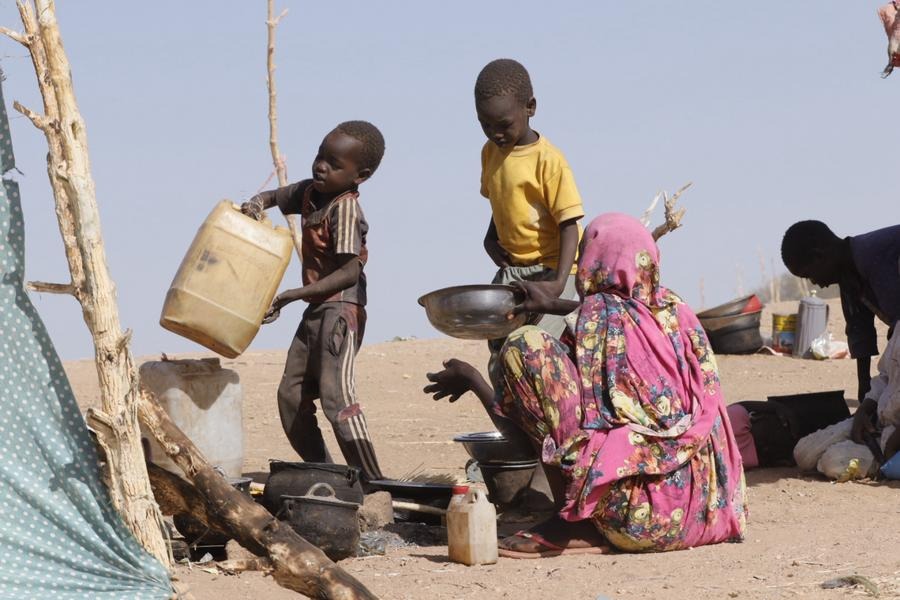Experts call for US-China collaboration to fight cancer

Despite the differences and tensions between the United States and China, the fight against cancer remains a bright spot where the two countries can collaborate to benefit not only the two peoples but also the whole world, said health experts.
It's "a no brainer" for the US and China, top two countries in terms of cancer burden, to work together against a common enemy, said Dr Bob Li, an oncologist and drug development scientist at Memorial Sloan Kettering Cancer Center in New York, at a recent conference held by Asia Society Northern California to examine US-China relations.
His institution has been partnering with academic institutions and biopharmaceutical companies in China to accelerate international clinical trials to cure cancer.
"It makes a real difference to collaborate with China, especially for R&D investment and technological advances in the field of cancer biology, in this international fight against cancer," said Li, also a senior fellow on global public health at the Asia Society Policy Institute's Center for China Analysis.
For example, precision medicine is a highly effective medicine that can improve survival and outcomes beyond the traditional chemotherapies, but the research needs a lot of testing and investment, he said.
"China provides that scale," said Li. A clinical trial traditionally takes 10 to 15 years on average to get approval, and most drug development would fail that process, but when collaborating with China, that process can be "incredibly" accelerated, he said, using the example of a drug developed by AstraZeneca.
The drug is targeting EGFR (epidermal growth factor receptor) mutation that causes about 15-20 percent of lung cancers, and this mutation is more common among Asians, especially Asian women who never smoke.
By collaborating with China, the pharmaceutical company set a world record in cancer drug development, said Li.
In the field of drug development and clinical trials, Dr Alex Ng, vice-president of Tencent Healthcare, said technology plays an important role, and the company's experience in tackling local problems in China can have a global impact.
As a tech company, Tencent also has been investing in healthcare to explore the application of AI technology in healthcare and frontier scientific discovery, said Ng.
"To understand the underlying cause of diseases and identify mutations, you need a lot of genomic sequencing analytics. Our lab is moving into single-cell sequencing," said Ng, adding that the database being generated is enormous, and they are working on how to develop AI algorithms to better harness the data.
One example of AI helping solve healthcare issues is addressing "the supply and demand mismatch", said Ng, because China has one of the largest populations of cancer patients but there are not enough capable oncologists to serve them.
The company has developed a matching algorithm to help patients find the right doctors, which can increase efficiency by up to 70 percent, said Ng.
Another example of applying AI to clinical trials is to help tackle the cervical cancer burden in rural China, which is affecting many women of childbearing age, Ng said.
With the help of the AI algorithm, the women can take a camera and look at the cervix, and the AI technology will inform them whether it is normal or they need to do a biopsy. If they need a biopsy, the AI will tell them where they can be biopsied.
"We actually developed a sort of appropriate diagnosis and treatment on the spot to augment the experience at the level of rural villages," said Ng.
"We solve these problems, and we are publishing this knowledge, because we see the issues — the mismatch of patients to doctors, or the lack of experienced hospitalists in rural areas — in other countries as well," he said.
Li agreed that technology and collaboration are the answer to the challenges of fighting cancer globally.
There are no IP concerns, because the data is all presented publicly, so it's an open collaboration, said Li, calling for the US to collaborate with China.
"The cure-for-cancer movement has been built upon decades of goodwill between the two nations, with collaboration between scientists, physicians and patients," he said. "This is a fight that really unites and brings the world together, and we're hoping to achieve some policy innovations in this."































